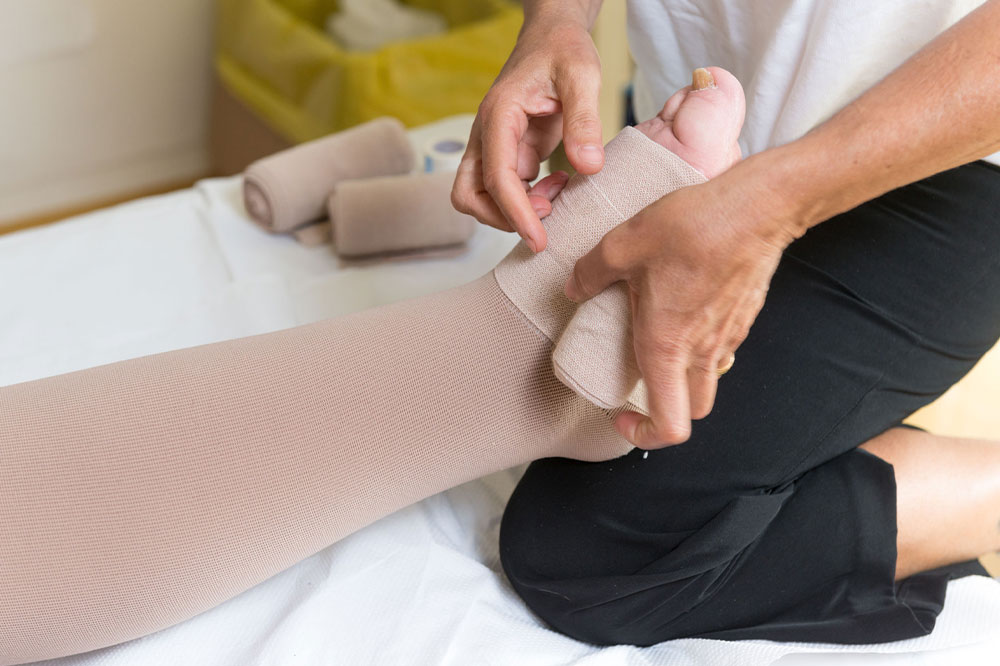Exercises Beneficial for Lymphedema
Lymphedema is characterized by pain and the abnormal swelling of your hands, arms, breasts, torso, and other body parts. It occurs when the lymphatic vessels or lymph nodes are damaged or injured during surgical or radiation therapy for cancer. A blockage gets formed in the lymphatic system, preventing the steady and proper draining of lymph fluid. Thus, treatment for the condition includes physical therapy exercises to keep the fluid moving and reduce the symptoms.
The connection between lymphedema and exercises
You should be aware of the symptoms and treatments for lymphedema after being diagnosed with it. Ignoring the accumulation of excess fluid might increase the risk of infection, pain, and distress sensations in your arm.

Exercise stimulates your muscles to function and increases fluid flow in the lymphatic system, transporting it away from the swollen region.
It can aid you with healthy weight management, which reduces the risk of swelling and other related symptoms.
Regular exercise will enhance the flexibility of your knee joints while improving the complete range of movement, helping you get rid of lymphedema symptoms.
10 best exercises for lymphedema
Exercise and lymphedema have a direct connection and staying physically active can help you establish a long-term healthy lifestyle pattern. However, remember to start with the regiment with simple aerobic warm-up stretches. As you do the exercise, ensure to take deep abdominal breaths. It is strongly recommended to talk to your doctor before attempting any of these.
Here we have listed out the top 10 best exercises to manage lymphedema-associated symptoms and get rid of them.
Pelvic tilt
You need to lie on your back on the floor with your knees bent and feet flat. Tilt your hips so that you are able to press your back against the surface. Now hold the pose for a few seconds and release the contraction.
Toe curls
Begin the exercises in a supine position (where you have to lay down on your back). Raise your legs above your heart by placing pillows below the knee. Curl the toes as tight as possible and release the position.
Bridges
Lie down with your knees bent and feet flat. Now raise the body off the surface while actively engaging your core. Your back should be in a string line, and the knees should be aligned with the shoulders. Hold the position for 10 seconds and modify it to 30 seconds.
Shoulder rolls
Lift your shoulders to the ears and rotate them back and down, enabling a seamless and continuous motion in each direction.
Wrist circles
Hold your arms over the head and rotate your fist in small circles in both directions, limiting the movement to the wrists alone.
Wrist flexion and extension
Similar to wrist circles, hold your arms overhead while flexing and extending the wrists steadily.
Fist clench
Hold your arms over your head and open your hands. Stretch your finger by spreading them apart and slowly clench each hand to make a fist.
Hip and knee flexion
Raise one knee at a time your chest and then straighten. Repeat the same with the other knee.
Clamshells
Lie down flat and put your feet together. Open and close your legs while engaging the core.
Torso rotations
Lie on your back and rotate your torso to one side, holding it for a few seconds. Now rotate it to another side before returning to the position.
Tips to follow while performing lymphedema exercises
If you have not performed any type of exercise in a while, it is best to begin slowly and gradually increase the intensity. The most crucial thing is consistency, be it gentle stretches or strengthening patterns. Your therapist will suggest the best exercise for you and will guide you throughout the process. You can reap the benefits of lymphedema exercises by following the simple tips below:
Mind the posture
While performing exercises for lymphedema, maintain a proper posture. It will help you to avoid unnecessary injuries and get the best out of the routine.
Consider the correct fit
The best and most effective exercises for lymphedema also demand the implementation of proper-fitting equipment and compression garments to stimulate blood circulation throughout your system.
Contemplate the combination
Depending on the individual well-being and the severity of the condition, your therapist might suggest putting you on an exercise regimen that might be a combination of flexibility, strengthening, and aerobic exercises. Stretching exercises will maintain the range of motion and decrease the symptoms of the condition. Aerobic exercises added with light resistance will decrease the flare-up episodes of lymphedema and ensure optimal weight. When starting with low resistance, the strengthening exercises will increase your strength. Over time, you can add more weight and increase your reps for better results.
Final words
The lymphatic system is critical in maintaining overall health by transporting protein-rich fluids throughout the body. Therefore, exercising and eating healthily is vital to manage overall health.
Performing simple yet short exercises regularly will reduce the frequent flare-ups of lymphedema. It will also help your body to transport the natural fluids to the circulatory system to decrease swelling. In a nutshell, regular check-ups with doctors and therapists, along with exercise and education about lymphedema, act as the key to keeping up with the condition.

